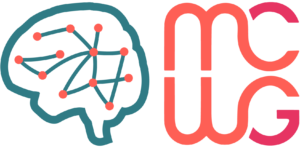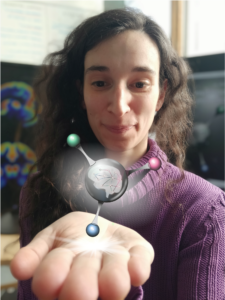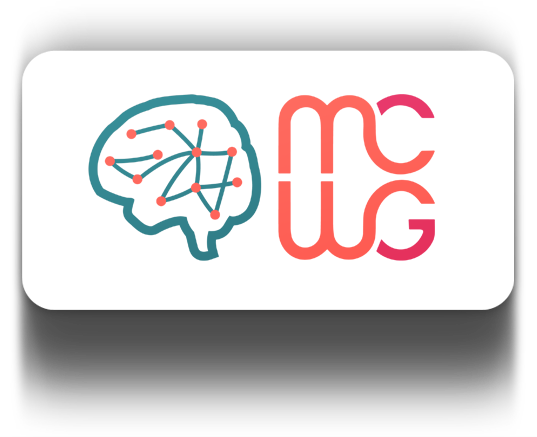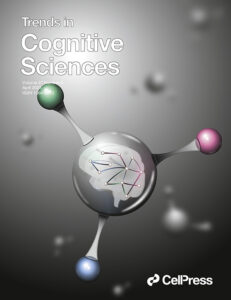
Hello!
Happy New Year! We are happy to share this inaugural newsletter from the Molecular Connectivity Working Group (MCWG)! We are reaching out to you as you have previously shown interest in the MCWG and we hope that this will be a welcome resource for keeping you informed about future activities and initiatives!
1. We are very pleased to announce the inaugural talk in our Molecular Connectivity Online Series, “MCOS”!
Date: January 19th, 2024
Time: 15:00 CET, 9:00 EST
Title: Brain connectomics: Time for a molecular imaging perspective?
The seminar will comprise a 30 minute presentation followed by discussion (~25 minutes).
Please register here.

Our first talk will feature Arianna Sala, PhD, from Liège University in Belgium, discussing the basics of molecular connectivity. The paper can be found here: “Brain connectomics: time for a molecular imaging perspective?” Arianna’s work aims to better understand disorders of consciousness using a multi-level molecular neuroimaging assessment to investigate patterns of hypometabolism and brain (dis)connectivity.
The MCOS will include seminars and tutorials to promote resource sharing and methodological rigor in the field. We will hold MCOS every third Friday of the month, subject to change due to speaker availability.
Case in point, our seminar for February will be held on 23 February at 15:00 CET, 9:00am EST featuring Chris Habeck, PhD who will discuss Basic introduction to multivariate neuroimaging analysis – for nerds and novices. Stay tuned for next month’s newsletter!
2. New Logo!

MCWG would like to also announce our new logo, created by Michael Rullmann, PhD, member of the Outreach Council. The curved, fresh and almost symmetrical MCWG wordmark echoes the iconic brain illustration of the MCWG cover image in Trends in Cognitive Sciences.
Members of the MCWG are (co-)organizing the 12th European Conference on Clinical Neuroimaging in March in Leipzig, featuring invited talks on molecular imaging, total-body PET, imaging in psychiatry and ATN concept in Alzheimer’s disease. Register now to benefit from the Early-Bird-Rates (before Feb 22nd).
Please send us information about events related to brain connectivity and molecular connectivity that you wish to share with the community for consideration no later than the final day of each month using this form.
Additionally, we would like to share news that MCWG members Silvia Paola Caminiti, Gabriel Gonzales-Escamilla and Arianna Sala served as editors for a recently published Frontiers special issue with papers from additional MCWG members in relation to molecular connectivity found here: Imaging Brain Molecular Connectivity in Health and Disease | Frontiers Research Topic; Editorial: Imaging brain molecular connectivity in health and disease.
Please submit any news, including publications you would like highlighted or job listings related to brain connectivity and molecular connectivity that you would like to share with the community for consideration no later than the final day of each month using this form.
Each month, we will feature a member of the MCWG and have a brief Q&A!
This month please enjoy our highlight of Dr. Simon Eickhoff, member of the MCWG Advisory Board.


Simon Eickhoff is a full professor and chair of the Institute for Systems Neuroscience at the Heinrich-Heine University in Düsseldorf and the director of the Institute of Neuroscience and Medicine (INM-7, Brain and Behavior) at the Forschungszentrum Jülich. He is furthermore a visiting professor at the Chinese Academy of Science Institute of Automation. Working at the interface between neuroanatomy, data-science and brain medicine, he aims to obtain a more detailed characterization of the organization of the human brain and its inter-individual variability in order to better understand its changes in advanced age as well as neurological and psychiatric disorders. This goal is pursued by the development and application of novel analysis tools and approaches for large-scale, multi-modal analysis of brain structure, function and connectivity as well as by machine-learning for single subject prediction of cognitive and socio-affective traits and ultimately precision medicine.
Dr. Eickhoff has graciously responded to our feature questionnaire:
The following three questions were answered in combination.
What is your role in the Molecular Connectivity Working Group and what have you been contributing to/working on with the Molecular Connectivity Working Group?
What do you think are the most important challenges in current brain connectivity research and what unsolved/underappreciated issues should the community tackle to advance the field?
In what ways do you imagine the impact of molecular connectivity will have in advancing our understanding of brain function?
For me personally, these questions are all very closely related. There is no such thing as “the” connectivity between brain areas or “the connectome” of the brain. Rather, each method for assessing brain connectivity can reveal distinct aspects of the brain’s network architecture, its inter-individual variability and ultimately relation to neurological and psychiatric disorders. Unfortunately, each method also comes with its inherent limitations and biases. Consequently, I am deeply convinced that the integration, comparison and combination of different aspects of brain connectivity is the key to get better insights into neurobiology and pathophysiology. And molecular connectivity certainly provides a very distinct layer of information that can provide extremely valuable insight into mechanisms not accessible through any other method. Looking into the respective relationships in health and disease and ultimately using multi-modal information for understanding and predicting behavioural or clinical phenotypes will be the main focus of my work within the MCWG and beyond.
What is your favorite mentoring memory? This can be in relation to the impact of a mentor on you or a memorable story about your impact on a mentee…
It’s not so much a specific moment or event, but what I am most happy about is that we as an institute not only managed the Covid-pandemic but actually developed a new way of working and communicating during that time combining massive flexibility with close interaction. Mentoring people, including faculty, through this process and seeing how nice it works every day is amazing. But observing that it allows many young parents to combine work and family life is my favourite.
What scientist or scientific achievement do you most admire?
Hard to pick any individual one among the pioneers in (clinical) neuroscience during the late 19th century. It is simply unbelievable how much of their basic concepts, from brain organization to clinical nosology is still foundational to our current work, in particular considering the limited methodologies at their disposal. Teaches you a lot about the value of careful investigation and critical conceptualization.
Representative Publications

The MCWG is made up of four international and multidisciplinary councils dedicated to promoting molecular connectivity research via dissemination of methods, results, collaboration, and resource sharing (e.g. datasets, tools) within the scientific community. We encourage the neuroscientific community to take an integrative perspective in study of the brain connectome, where various methods including MRI-based techniques, electrophysiological tools, and molecular imaging advance our understanding of the brain. Please find fundamental questions outlined here: “Brain connectomics: time for a molecular imaging perspective?”